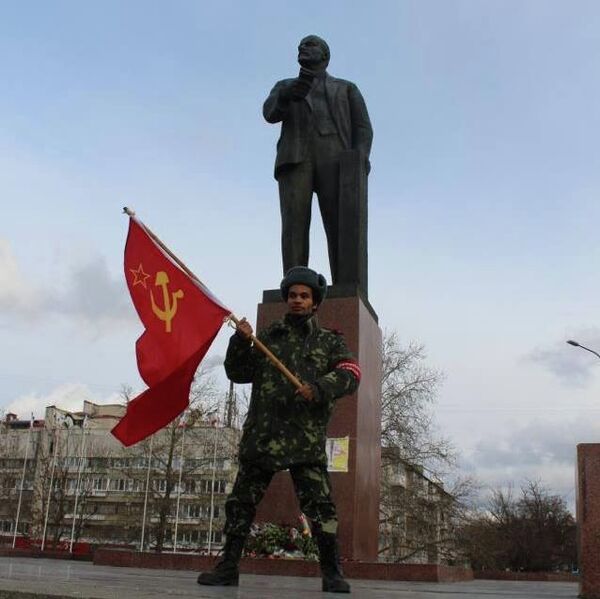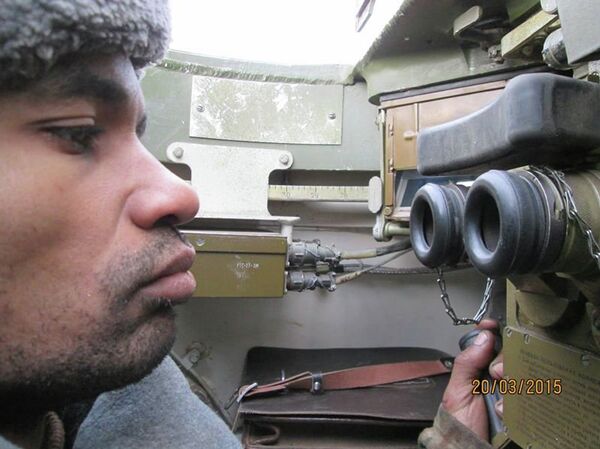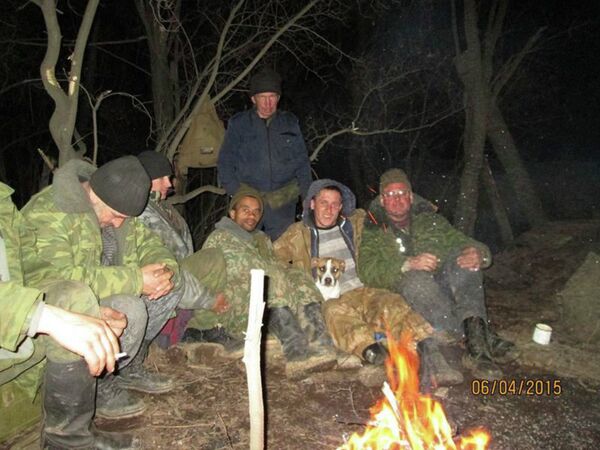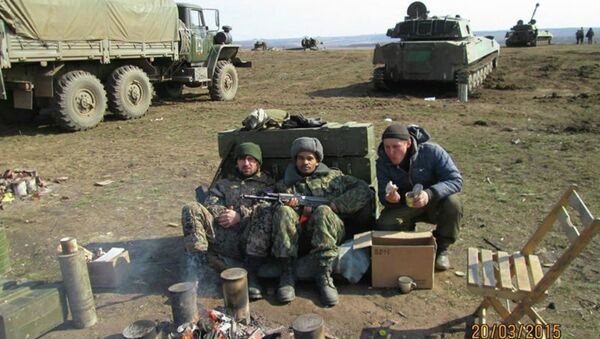Last time I heard about you, you were arrested by Ukrainian border guards while crossing the border and deported to Latvia. How did you get back to the Donbass?
I was actually deported from Ukraine twice. The first time it was from Donetsk, by the order of the then-governor. I was deported to London, where I previously lived, studied and worked for seven years. From there I went to Crimea, and after Crimea's reunification with Russia, I went to Donetsk.
I was not arrested while crossing the border. I was already in the region with my comrades and got in contact with our people. That's when we were apprehended.
They were army people, not border guards. They beat us with their legs and with chains, and they took us to Kiev, where they transferred me to the Ukrainian Security Service, where they beat me up and deported me to Latvia because I'm a Latvian citizen.
In Latvia, I spent two months in prison after my May 11 deportation. I was sentenced on charges of "undermining Latvia's territorial integrity," "calls for a violent change to Latvia's political and economic structure," and "preparations for violent liquidation of Latvia's independence." This was all based on my speeches in Donetsk and Simferopol, where I called for the restoration of the USSR.
Thanks to an appeal from the leader of the Russian Dawn party, who is an experienced lawyer, I was released in late July. In prison I was denied the rightful verification of torture by Ukraine's Security Service and National Guard, and in needed medical aid.
I consider the charges fabricated against me in Latvia political repression and I will obtain complete acquittal in Latvian court, as well as compensation for moral damages an the illegal prison sentence.
I was released on conditions that I don't leave the country and put under police supervision. While under harsh police control, security forces came to my house practically every day, including at night, to check what I was doing.
I escaped through Estonia on December 29 by hitchhiking to the border and then crossing through the forest to avoid border patrol, and then on to Finland by ferry. I arrived in Moscow on December 31, where I spent three days, and then went to the Lugansk People's Republic.

What are you doing now?
I am a serviceman in the Army of Novorossia and got here through the Intebrigades, organized by the Other Russia party. I have served in the artillery for three months now.
The Interbrigades are foreigners, leftists from around the world who are against imperialism. We have volunteers from Afghanistan, Brazil, France, Italy, Britain, Ireland, 50 Red Latvian riflemen, Serbia, Greece and so on.

From what I understand, Other Russia is the former National-Bolshevik party and is generally a nationalist movement. Have you encountered racism in the movement and in the militias? If yes, how did you overcome it?
We are not a nationalist movement! Here's why. Our party has representatives of different races and nationalities. We have Russians, Latvians, Ukrainians, Belarusians, Jews, Kazakhs, English people, and three races — white, yellow and black.
We are a purely internationalist party and act against discrimination and humiliation of any people in the world and Russia.
But we love Russia, our motherland, and defend its interests first of all. We want to see it be a strong, flourishing socialist state in which things all nationalities are comfortable.

What does it mean for you to be Russian?
For me being Russian means to love, respect and study Russian culture, literature and popular art. To study Russian history and also participate in political struggle with the goal of improving the life of the people and turning Russia into a flourishing state
My party and I supported the historical reunification of Crimea and Russia and went to Crimea in March to participate in the people's liberation movement.
We also believe that Russia is doing the right thing by sending humanitarian aid to Novorossia and supporting the DPR and LPR at international peace talks and meetings.
This interview has been edited for length.

